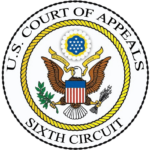The federal circuit courts of appeals play a vital role in shaping American jurisprudence by interpreting and applying federal laws. These courts serve as a crucial level of review, handling a wide range of cases from all areas of federal law. Let’s take a closer look at some recent news and noteworthy cases:
First Circuit
Last month, the First Circuit affirmed in part and reversed in part the dismissal of a putative class action asserting claims under the Securities Exchange Act of 1934 against a pharmaceutical company in Shash v. Biogen, Inc., 2023 WL 6617278 (1st Cir. 2023). Plaintiffs alleged that the company made misstatements and omissions regarding the clinical trial results of the company’s drug to treat Alzheimer’s.
Data from clinical trials suggested that the drug was not effective at initially prescribed doses so the Defendants recommended higher doses and obtained FDA approval for the drug.
The Court noted that plaintiffs alleged other Company data suggested that certain patients who received a high dose of the drug did not achieve better clinical outcomes when compared to those who received the placebo, that certain patients who initially received a higher dose of the drug did not experience better clinical outcomes after a dosing protocol was changed in the trials, and, in fact, only a limited subgroup of patients had results that suggested a higher dose demonstrated the drug’s efficacy.
https://www.jdsupra.com/legalnews/first-circuit-partially-revives-7750143/ The case will return to district court for further proceedings.
Sixth Circuit
 The Sixth Circuit continues to grapple with environmental law in 2023, as seen in Buckeye Power Inc. v. Environmental Protection Agency. The EPA urged the Sixth Circuit to reject the Ohio Utilities’ request to get out of complying with a controversial emissions rule while they challenge its validity, saying the appeal is in the wrong venue and the companies have not shown they have been irreparably harmed.
The Sixth Circuit continues to grapple with environmental law in 2023, as seen in Buckeye Power Inc. v. Environmental Protection Agency. The EPA urged the Sixth Circuit to reject the Ohio Utilities’ request to get out of complying with a controversial emissions rule while they challenge its validity, saying the appeal is in the wrong venue and the companies have not shown they have been irreparably harmed.
Seventh Circuit
In Doe v. Mukwonago Area School District, the Seventh Circuit is considering whether policies prohibiting transgender students from using the bathroom consistent with their gender identity violate Title IX.
Plaintiff Jane Doe #1 is transgender and has presented and been recognized as a girl at home since the age of three, and at school since first grade. After moving to the Mukwonago area in third grade she continued using the girls’ restroom without incident for nearly three years. As alleged in the Complaint, towards the end of her fifth-grade year Defendants began working to deny Jane Doe #1 access to girls’ restrooms at school, ultimately ordering her to use only boys’ restrooms or a gender-neutral restroom in an administrative area at the District-run summer school program, monitoring her bathroom use, and threatening disciplinary action for continued use of the girls’ restrooms. These efforts culminated in the adoption of a formal policy requiring students to use restrooms based on their “original sex assigned at birth.”
Ninth Circuit
The Ninth Circuit established a new test for when federal contractors can remove cases against them from state to federal court under the so-called “federal officer removal” statute.
In a 2 to 1 decision, the Ninth Circuit held that, “where the government’s independent contractor is also an agent under common-law agency principles as reflected in the Restatement (Third) of Agency, the contractor ‘acts under’ a federal officer for purposes of” the statute. The panel reversed the district court’s order that had remanded the case against SOC LLC, SOC-SMG, Inc., and Day & Zimmermann, Inc. (SOC)—federal defense contractors who provided protection services at various Department of Defense (DOD) facilities in Iraq under the Theater-Wide Internal Security Services II (TWISS II) contract—holding that SOC had carried its burden of establishing federal jurisdiction.
Tenth Circuit
The Tenth Circuit continued to address matters of tribal sovereignty and self-governance. In Hooper v. Tulsa, the court upheld tribal sovereignty and settled federal law – reaffirming that “states and municipalities do not have criminal jurisdiction over Indians in Indian Country,” Chief Chuck Hoskin Jr. said.
Sparked by a speeding ticket, the case involved Choctaw Nation citizen Justin Hooper, who questioned whether Tulsa has jurisdiction over municipal violations in Indian Country. In legal filings, he successfully appealed his $150 traffic fine, claiming the 1898 Curtis Act held no sway over municipalities within reservation boundaries.
***
As the year winds down, federal courts will continue to influence and define American jurisprudence, adapting to the evolving legal landscape and contributing to ongoing discussions surrounding our nation’s laws and policies.